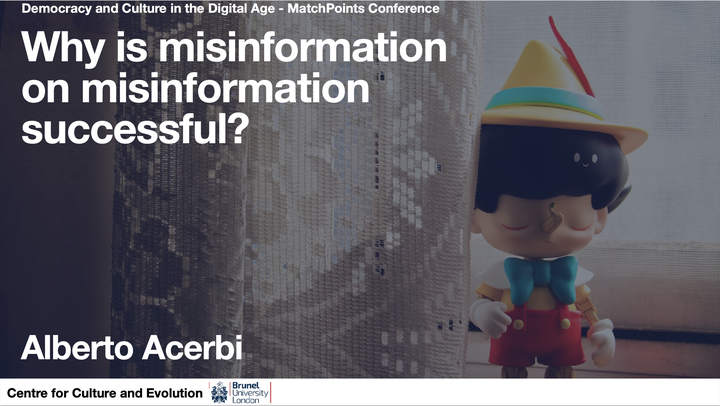Why is misinformation on misinformation successful?

Abstract
Despite widespread concerns, the supporting evidence of the abundance, effectiveness, and consequences of online misinformation is, at best, mixed. This misinformation on misinformation may have serious consequences, including the erosion of trust in media, and the misdirection of social and economical resources to fight an illusory enemy. In this talk I focus on the cognitive aspects that contribute to the success of this narrative, by enhancing its plausibility, the amount of attention it receives, or people’s willingness to share it. Among these factors I will discuss (i) the overestimation of others’ gullibility, (ii) the preference for simple (monocausal) explanations, (iii) a general negative bias towards new technologies, and (iv) the appeal of threat-related information.